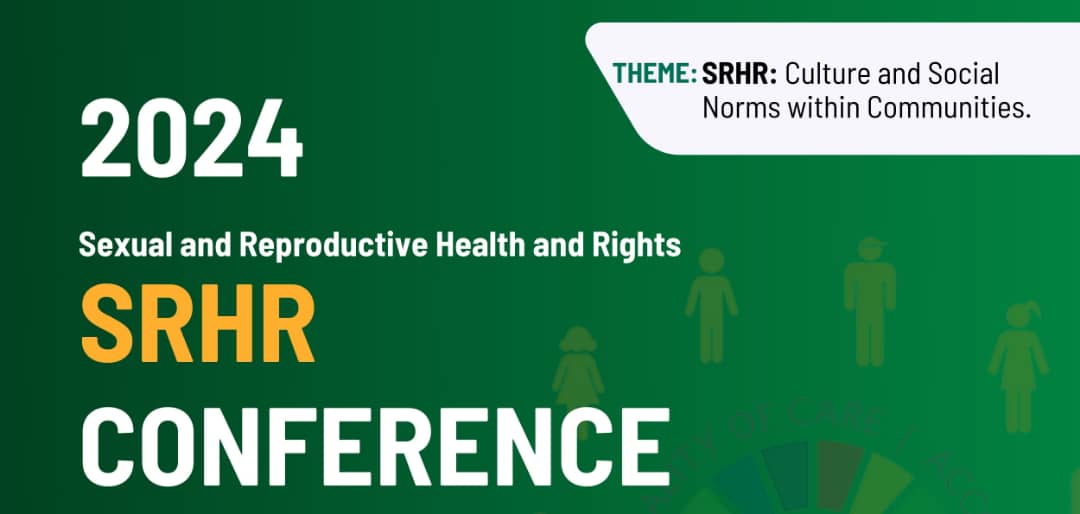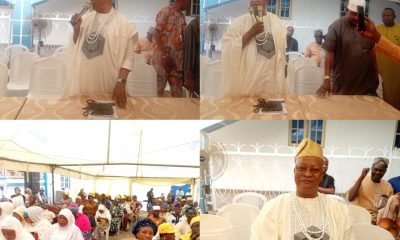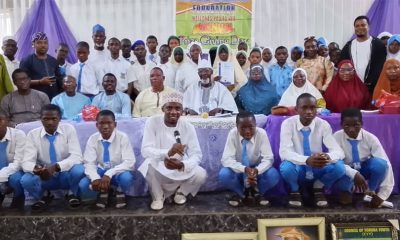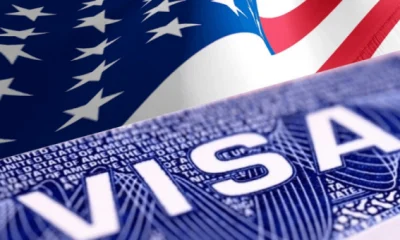Opinion
Addressing SRHR Barriers In Nigeria By Hameed Oyegbade

The conversation around sex and sexuality often offend certain people for different reasons. While some people believe that it’s sensitive matter that should not be discussed in public, some others run away from the subject because of their religion or cultural beliefs. But we cannot stay away from sex and sexuality as it’s part of our lives and existence, especially issues around reproductive and heath and most importantly the issues around rights -freedom and liberty.
Arguably, for the first time in Nigeria, stakeholders converged and had conversation on issues around Sexual and Reproductive Health and Rights in the country. The first SRHR National Conference in Nigeria centered around the need to examine laws and how they affect access to health and rights for sexual minorities and key population and other vulnerable groups. The person’s affected, the advocates, civil society and rights activists and the media attended the conference organised by Lawyers Alert in Abuja, the nation’s Federal Capital Territory.
The Conference with themed: “SRHR Culture and Social Norms within Communities” offered a platform for a coalition of small and medium organizations dedicated to Sexual and Reproductive Health and Rights (SRHR) that emerged through the Amplify Change grant facilitated by Lawyers Alert from 2018 to 2020 to brainstorm and collectively sought solution to SRHR barriers in Nigeria.
Lawyers Alert organized and facilitated the Conference under the auspices of the SRHR Movement. The Conference brought together experts and advocates. They discussed the multifaceted challenges impeding SRHR progress. Delegates included Key SRHR Advocates, SRHR CSOs, the LGBTIQ+ Community, FSW, and Donors. Conversations were both at plenary and panel sessions.
Discussions covered a wide range of pressing topics, including safe medical abortion, sexual and gender-based violence (SGBV), female genital mutilation, LGBTQI+, HIV and the health status of SRHR in Nigeria, including information sharing and networking. It drew on the expertise of global, regional, national, and grassroots organizations, including donors, development workers, NGOs, and community-based groups.
At the end of the conference, the takeaway include the need to ensure massive awareness creation at especially community and ward levels, using local champions to speak against norms and culture that inhibit the right of women to choices. Using community platforms, individuals could champion campaign against harmful cultural practices such as Female Genital Mutilation and then support and encourage gender equality and women empowerment .
To achieve this, we must at all occasions and interventions, emphasize the human rights of key populations and sexual minorities in all advocacy and intervention strategies. The SRHR Movement in Nigeria should be strengthened through organizational and advocacy skills, strengthening and establishing more inclusive and expansive platforms to amplify SRHR narratives and foster robust networking among stakeholders.
It’s also imperative to encourage large and strong CSOs and agencies to always strive to include small and medium-sized SRHR grassroots organizations in their work and provide sub-grants to enable them to acquire new knowledge and skills. Also, it’s necessary to developing a comprehensive SRHR National Advocacy Plan to guide strategic advocacy efforts and effectively address SRHR challenges using the SRHR Movement platform.
In the spirit of fairness, Nigerian government must repeal laws and policies that undermine sexual and reproductive health rights, freedom of expression and assembly. Government should enact laws that recognizes gender and sexual diversity. For instance, government should repeal Section 12 of the 1999 Constitution of the Federal Republic of Nigeria as amended and other ancillary laws that inhibit the domestication and application of International SRHR treaties, conventions and protocols that Nigeria signs and ratifies.
Civil societies should sustain proactive and deliberate engagement with government entities such as the Ministry of Health, Ministry of Justice, National Agency for the Control of Aids (NACA), and National Tuberculosis, Leprosy and Buruli Ulcer Control Programme (NTBLCP) to ensure a quality response to SRHR issues. This will also enhance the present inadequate support from the government.
In conclusion, it’s instructive to note that this Conference highlighted the necessity for collaborative efforts and strategic partnerships to overcome barriers to the enjoyment of sexual and reproductive rights. This collective endeavour underscores the importance of unified action in advancing the SRHR agenda in Nigeria, striving for a future where every individual’s sexual and reproductive health and rights are respected and upheld. So, rights, freedom and liberty of citizens must not be denied.
Hameed Oyegbade, a journalist and public affairs analyst write from Osogbo
-

 News5 days ago
News5 days agoInsecurity: Kogi Schools Resume On Monday
-

 Opinion4 days ago
Opinion4 days agoDon’t Pull the Plug: Why Nigerians Are Pleading for the U.S. to Extend Its Police Training Program — and Why It Must Synergize With New Military Arrivals
-

 Crime4 days ago
Crime4 days agoVigilante Reportedly Shoots Colleague Dead In Plateau
-

 News2 days ago
News2 days agoRamadan: Osun Cleric Urges Compassion Among Muslims As Asejere Distributes Relief Materials To 537 Beneficiaries












